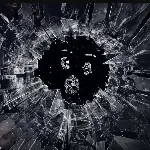If, in 2004, you saw the trailer for "I, Robot" and wondered if it would be similar to "A.I. Artificial Intelligence" (2001) or "Minority Report" (2002), would you have gone to see it? For thousands of viewers, the answer was a resounding yes.

Despite receiving mixed reviews and potentially angering some of Isaac Asimov's die-hard fans, "I, Robot" ultimately grossed nearly $350 million worldwide and became one of Will Smith's most iconic films.
"I, Robot" is a loose adaptation of Isaac Asimov's collection of the same name, which introduced the famous Three Laws of Robotics. The movie incorporates elements from Asimov's other stories, creating a highly entertaining summer sci-fi blockbuster. At the time, Will Smith was already a box office star. Still, initially, Denzel Washington was the first choice for the role of Del Spooner until he opted to star in "The Manchurian Candidate."

Will Smith's involvement changed many things—the original script was more complex, with Del Spooner's technophobia being so severe that viewers might be unable to distinguish between his reality and delusions. In the original ending, the robot Sonny is more ambiguously influenced by the supercomputer, leaving uncertain consequences for Del Spooner's decision to set him free. However, Twentieth Century Fox did not think this script would work because Will Smith always had to be correct. They brought in a second writer to add more action scenes and humor, making it feel more like a traditional Will Smith movie.
Despite some mockery at its release, "I, Robot" has become increasingly relevant. The launch of ChatGPT in 2022 triggered a global A.I. storm, alongside earlier technologies like Alexa or Siri and Amazon's delivery drones. While they aren't humanoid, they certainly bring the movie to mind.
There is a thought-provoking line in "I, Robot"—when Del Spooner's superior asks him, "How many robots have ever committed a crime?" Spooner replies, "Define crime." Today, we have numerous generative A.I.s whose functionalities may be built upon human intellectual labor. While this may not constitute a crime, it has undoubtedly led to legal disputes. Spooner's hatred for A.I. stems from his inability to accept cold, probabilistic calculations deciding human lives.

As the development of autonomous vehicles advances, the ethical dilemmas they pose have surfaced. If A.I. faces the trolley problem, it might not hesitate, but is this the world we want?

Compared to the utopian society of 2032 with no swearing or crime ("Demolition Man" (1993)) or childless humanity in 2027 ("Children of Men" (2006)), "I, Robot" may not be the best sci-fi film. Still, it is one of the most visionary. How much power will you hand to A.I. for human convenience and well-being? Every time I ask ChatGPT a question, I remember to say thank you.





















Share your thoughts!
Be the first to start the conversation.